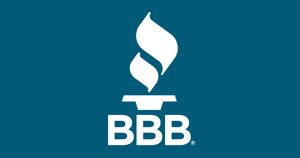Straight Talk: Think twice before buying from these social media ads

Social media advertising is an effective way for small businesses to get the word out about their products. Unfortunately, the same goes for scams.
BBB Scam Tracker has received thousands of complaints about misleading Facebook and Instagram ads.
In fact, the 2022 BBB Online Scams Report found that online purchase scams were the most common cons reported to Scam Tracker and the category with the most victims.
Look out for these common scams reported to BBB Scam Tracker
Products that claim to support a charity: As you scroll through your Facebook or Instagram feed, you see an ad from a small business selling adorable products, and some of the proceeds from the sale will go to a charity.
Some consumers report receiving direct messages from sellers promoting the products, asking them to spread the word to friends and family.
You make a purchase, but the merchandise is never delivered. When you contact the company about your purchase, they are suddenly unreachable or reply with an autoresponder. The product never existed; it was all a ploy to get your money.
Free trial offers: Many of these misleading advertisements promise a trial of the hottest new skincare or nutritional supplement for a minimal investment of shipping fees.
Consumers report that once they agree to the terms and conditions of these offers, they realize they have agreed to multiple monthly shipments for products over $70 to $100 each.
Before you sign up for “limited-time offers,” research the company. Read any consumer complaints and read the terms and conditions you agree to carefully. Watch out for pre-checked boxes and ensure you know the company you are purchasing from.
Counterfeit merchandise: Name-brand goods are prime targets for unauthorized duplication, from sporting goods to designer apparel and handbags.
By purchasing these products, you risk not only receiving a poor-quality product, but it may not meet environmental and safety regulations either.
Items priced significantly lower than other retailers are charging, spelling and grammatical errors in the advertisements, and poor-quality images are all signs that the advertisement may be for a counterfeit product.
Engaging ads and poor customer service: This covers a broad spectrum of complaints that BBB receives, from ads for beauty products to trendy clothing to kids' toys.
The ads look great and the products are inexpensive. However, once consumers purchase, the products never arrive. When the buyers contact customer service, they get a vague answer or don't hear back.
Before buying, do a Google search of the website name and the words “complaints,” “reviews” and “scam.” Check the “About Us” or “Contact Us” section on the company’s site. If the only way to contact the company is through a form, this is a red flag.
Apps of unknown origin: While scrolling through your feed, you may feel compelled to download the latest “free” app.
Beware!
By downloading this app, you could be opening your device to these unknown entities and signing up for recurring subscription fees. Victims report being charged fees as high as $99 every seven days.
Before you enter your username and password, read the reviews and the app's description carefully. Look for spelling and grammatical errors. Check that the developer's website is working and read the terms and conditions carefully.
How to protect yourself from social media scams
Do your research. Check if the company has valid contact information. Do not be fooled by professional photography or consumer reviews. These can be lifted from other sites. Check BBB Scam Tracker to see if others have been duped.
Search for previous complaints. Do a Google search of the business name followed by “complaints,” “reviews,” or “scam” and see what pops up. If you find this business has cheated other people, steer clear.
Use good judgment. Many con artists play on consumers’ desire to help those in need. Remember this when supporting charitable causes. Go to Give.org to research organizations before giving.
For more information on social media scams, go to BBB.org/SocialScams. If you have been the victim of a social media ad scam, share your experience at BBB.org/ScamTracker. Your report helps other consumers avoid falling victim to similar scams. Visit BBB.org or call us at 330-454-9401 to look up a business, file a complaint, write a customer review, read tips, find our events or follow us on social media.
This article originally appeared on The Repository: Straight Talk: Think twice before buying from these social media ads
